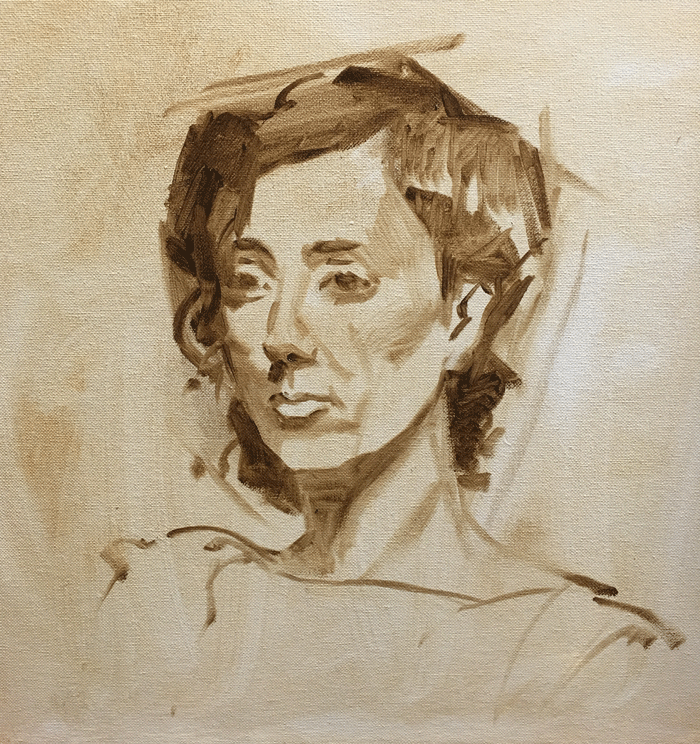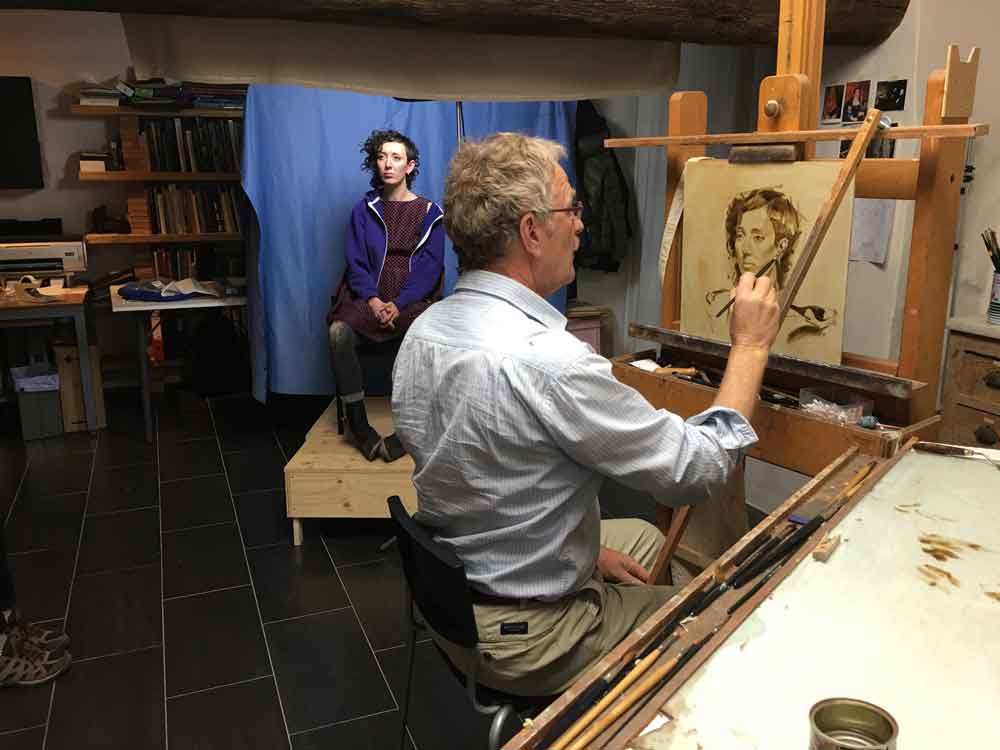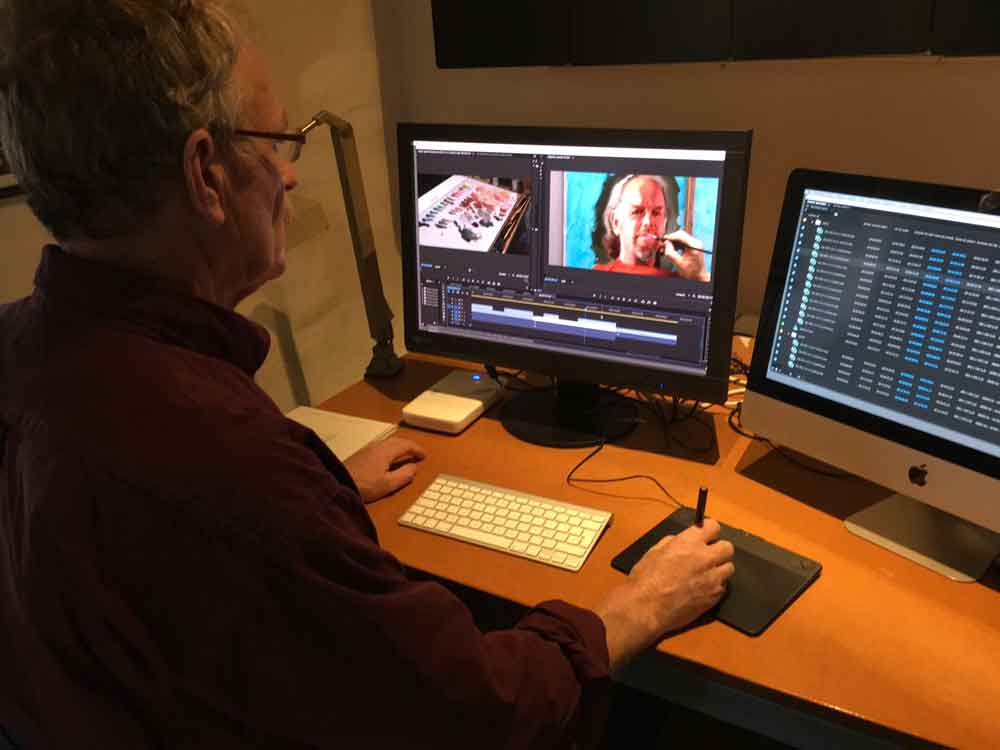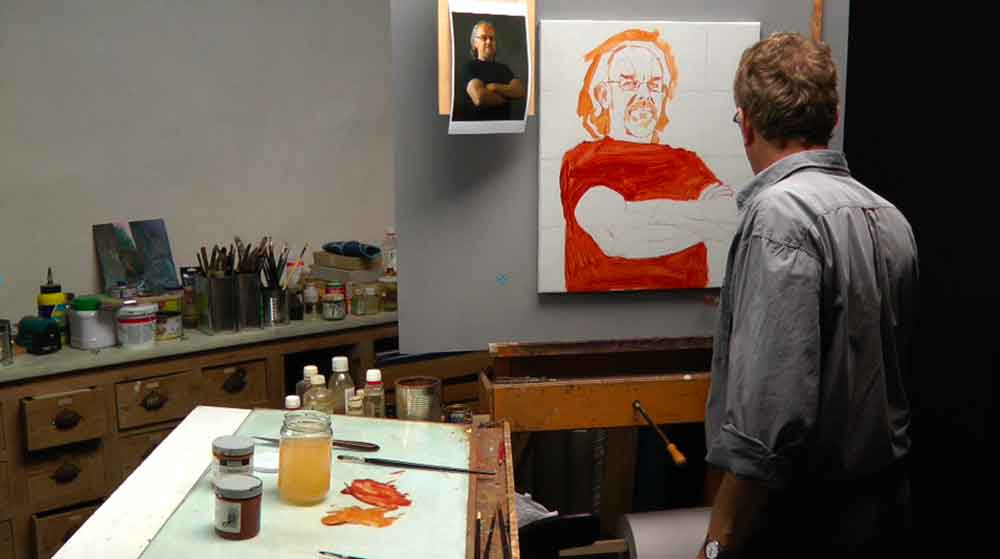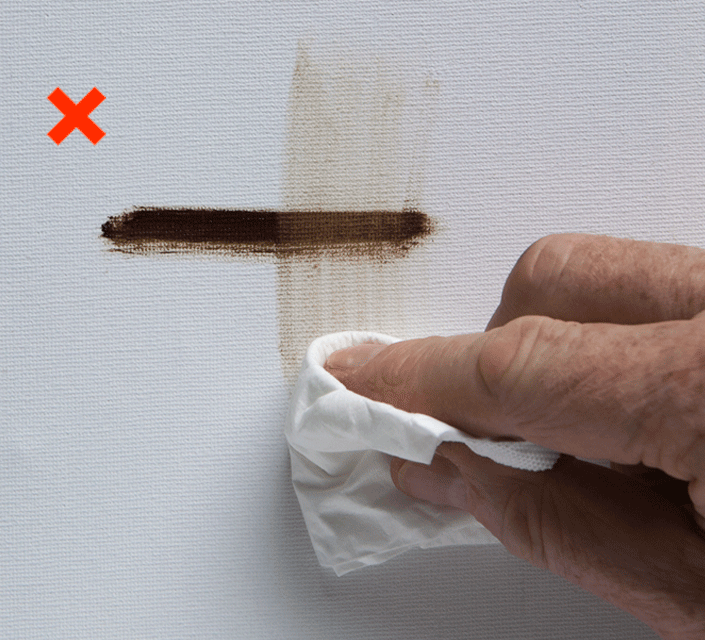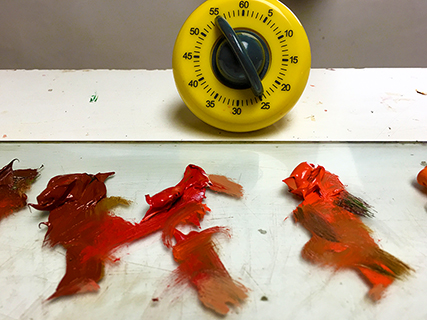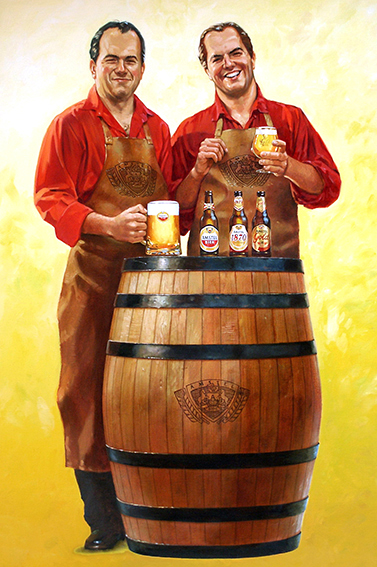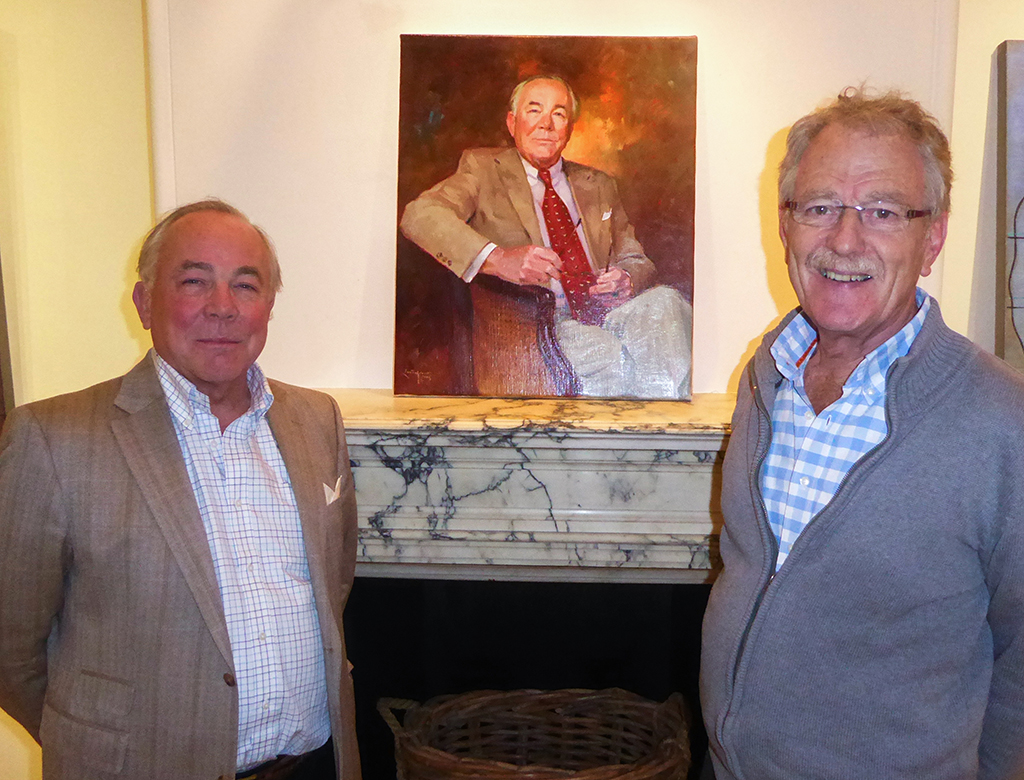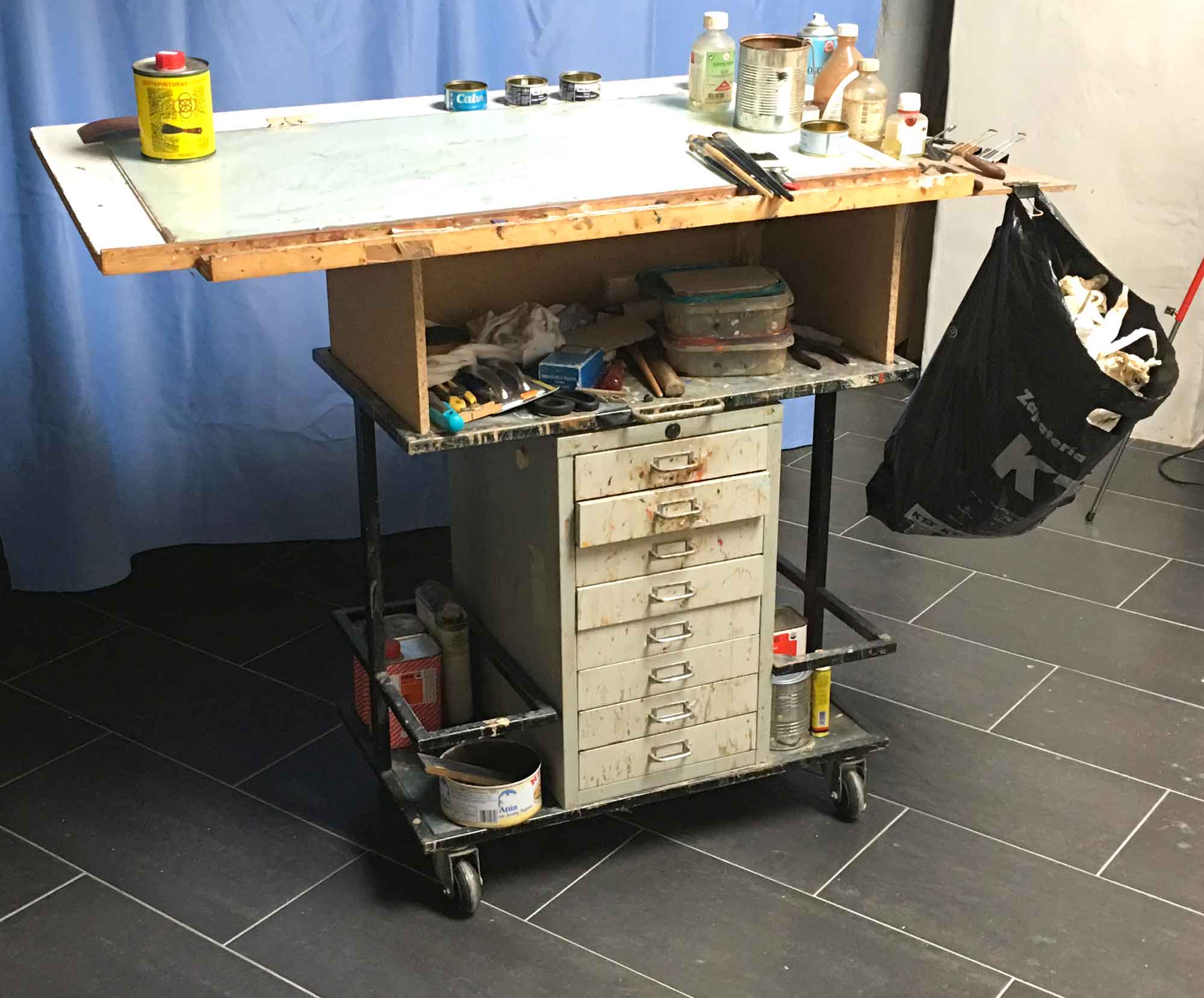
I am an avid do-it-yourselfer. Nothing more fun than tinkering around. (Being the handyman is a Lustenhouwer family aberration.) Big things like an entire studio or small things such as a colour-checker, I always enjoy the inventing and making. I’ve always had a reasonably resourced carpentry workshop. My wife Helma had, until recently, a well-equipped metal workshop at her disposal. So we could always make what we wanted. One of the pieces of furniture in my studio which has served me well through the years is my palette-drawer cabinet on wheels. Designed using a small office drawer of metal, I welded a structure around it and made wheels underneath. The thing is over thirty years old but is still my “piece de resistance”. Continue reading “Portrait painting and tinkering”


